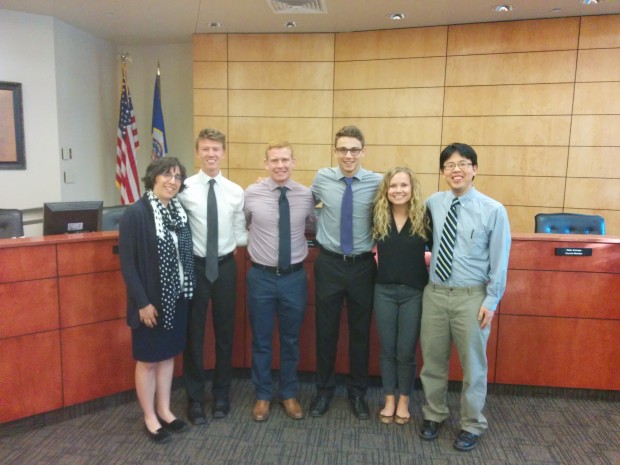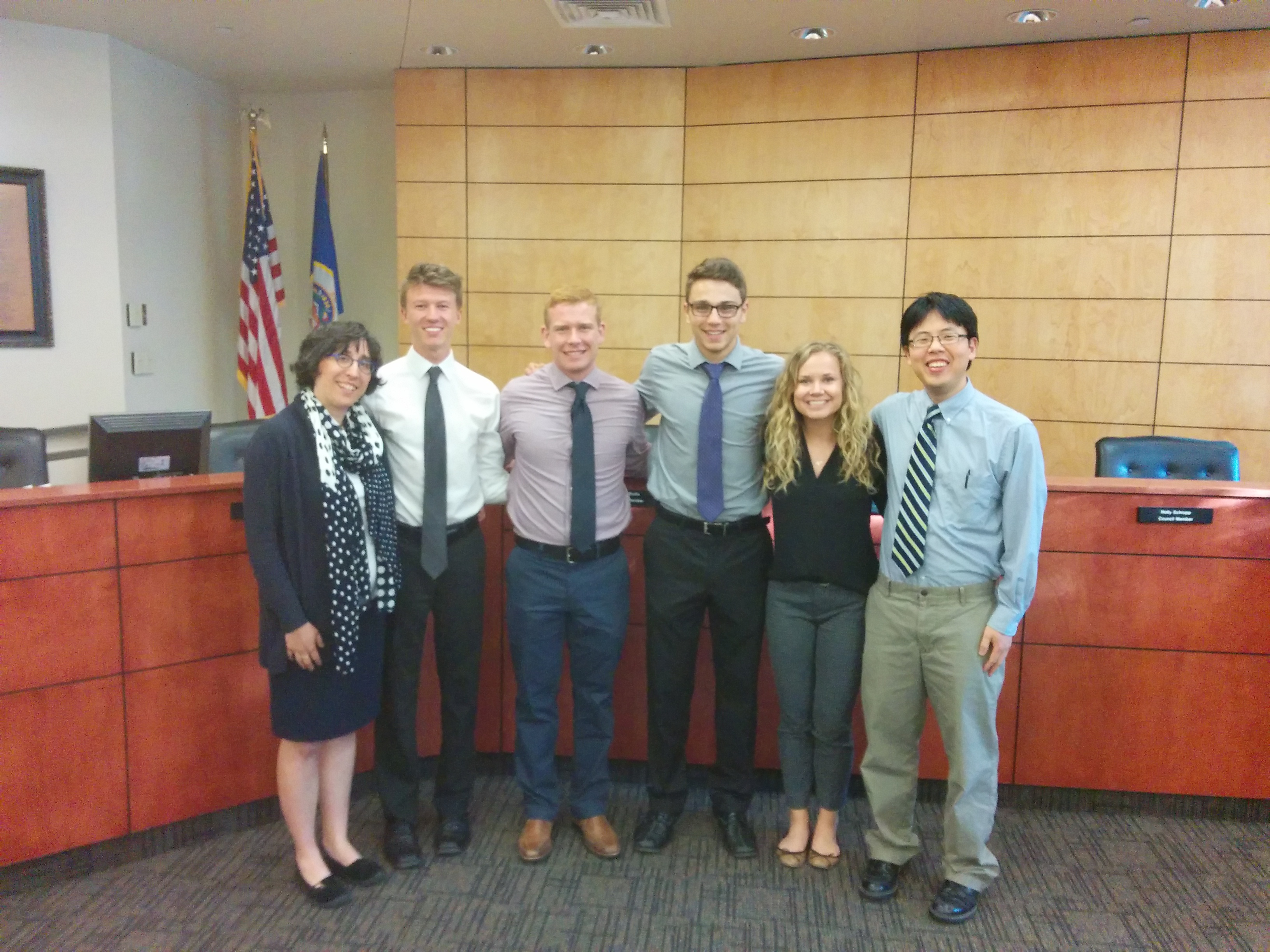
Students from specific economics classes visited the city of Delano on May 31 to present their semester long projects that outlined the city’s plan to improve on energy efficiency.
The classes — economics of the public sector and managerial decision-making– are courses integrated with the Sustainable Communities Partnership program through the Office of Sustainability Initiatives.
Economics students; graduate Kyle Andrews, junior Will Goodwin, senior Joshua Schoettmer and junior Abby Starr chose to go beyond the classroom and present their semester-long projects to the Delano City Council to help the city update and achieve energy efficiency.
“Being able to actually get up in front of a group of people and presenting my findings was really cool,” Starr said. “It was also not only the real world experience of doing the research and the analyzing of the data but also presenting the findings to a group of people.”
SCP helps small cities and communities by contributing the right tools to work at sustainability issues.
“What happens with sustainability is, it’s like this enormous set of issues that have to be managed right,” said Elise Amel, psychology professor and faculty director of the Office of Sustainability Initiatives. “Universities have expertise and cutting edge research and enthusiastic students in large numbers who can sort of put their heads together and work on these things, so it’s really a capacity-building endeavor.”
The economics classes follow a normal curriculum, which teaches students the tools they can apply to their projects, like switching from fluorescent to LED lighting and from standard thermostats to programmable ones. Schoettmer, a senior and economics major said that the real-world experience let them have realistic expectations and methods.
“If it would’ve been like a model, we probably would’ve been able to play with more lavish ideas that would’ve cost $200,000 and would have not had a good payback period,” Schoettmer said.
The students created Excel spreadsheets with a flexible design so Delano city leaders can input new information as the price of factors like labor, electricity or gas fluctuates. This helps the city adjust it financial outlook to its current situation.
“It’s that transition from the book-learning to the real world — that this is really a nice, sweet sort of opportunity to make that transition,” Amel said. “It is our hope that eventually we might be able to transfer this knowledge to other cities.”
Amel said that while the students may think they haven’t contributed so greatly to the city, the project will likely pay for itself in one to two years and save more than $850,000 over 10 years.
In addition to learning real-world economics practices, the students learned to value teamwork.
“That was the first time I’ve ever really experienced how important teamwork actually was — how you couldn’t divide and conquer, that you needed to come together and really conquer,” Schoettmer said.
While SCP’s goal is to integrate sustainability into specific courses, Goodwin said that finding the connection between the class and the project initially proved difficult.
“There were a lot of moments where I got frustrated, not seeing the application, not getting why we were doing this in our economics class,” Goodwin said. “The longer it went on, and then especially doing this presentation at the end … actually putting it into action, it was very clear to me that this was a huge, huge stepping stone that I had an opportunity to do that.”
Starr said that it was also an opportunity to move beyond the campus and meet people within the field.
“I think it’s very beneficial for the students to get their name out there. It’s helpful for networking as well as just kind of learning to conduct yourself in a professional manner in areas outside of just St. Thomas,” Starr said.
Learning to adapt to new situations was also essential to the project.
“Dealing with ambiguity, dealing with delays, managing time when time sort of fits and starts, you know it’s all very real and they definitely identified those things as being important learning opportunities,” Amel said.
Sustainable Communities Partnership
According to its website, SCP “links existing St. Thomas courses across disciplines to city-identified sustainability projects, advancing the common good by engaging students in real-world application of course material.”
SCP is a pilot program funded by St. Thomas’ 2020 strategic plan budget and aligns with the plan’s outlined sustainability goals.
The program’s three partners — Delano City, Elk River and the Mississippi Watershed Management Organization, which spans over several cities including Minneapolis — outlined 14 core issues, of which Delano’s lack of energy efficiency was just one.
SCP runs projects that can include up to 10 different disciplines including environmental science, geology and even theology.
Noura Elmanssy can be reached at elma7206@stthomas.edu



